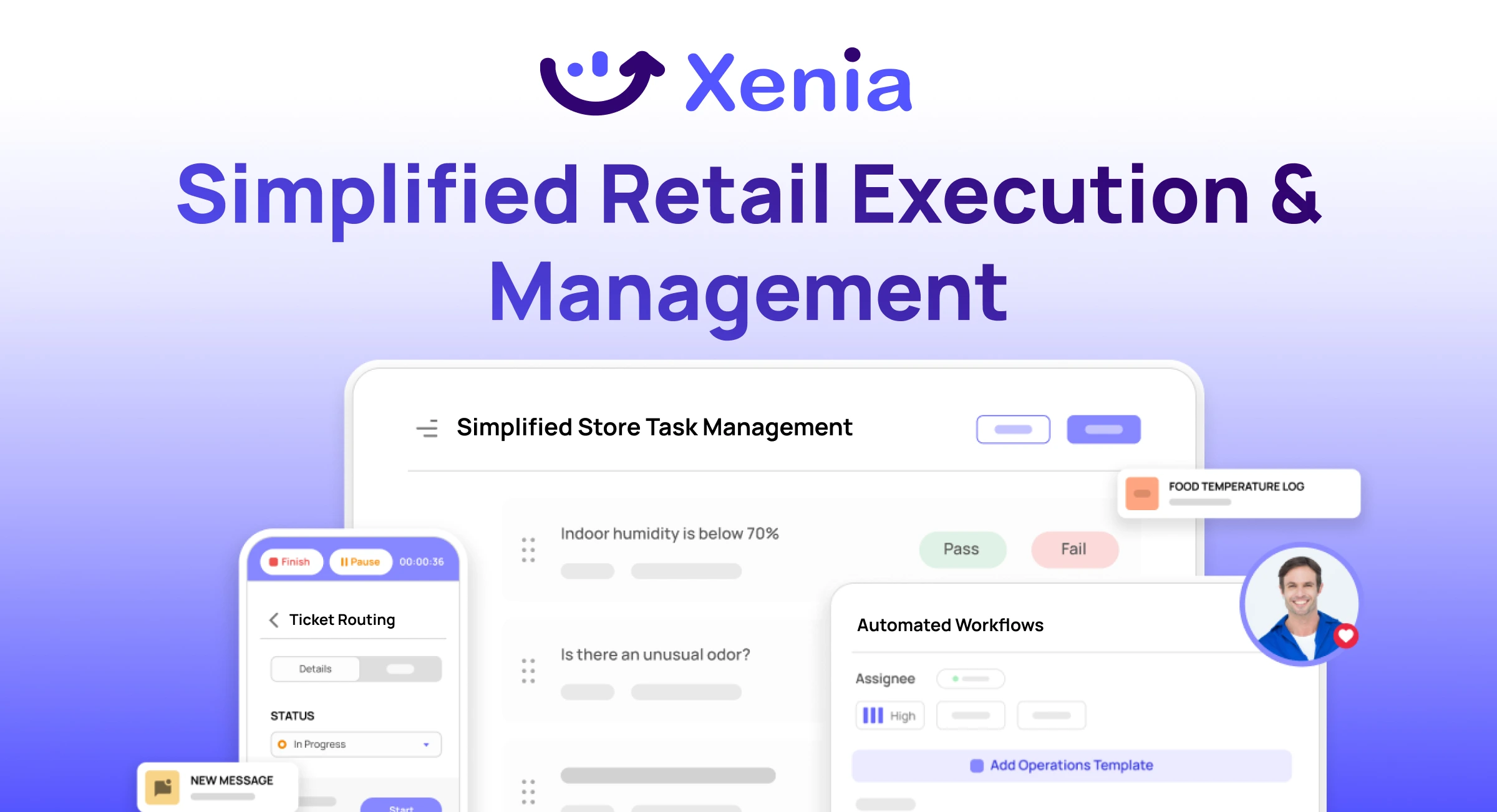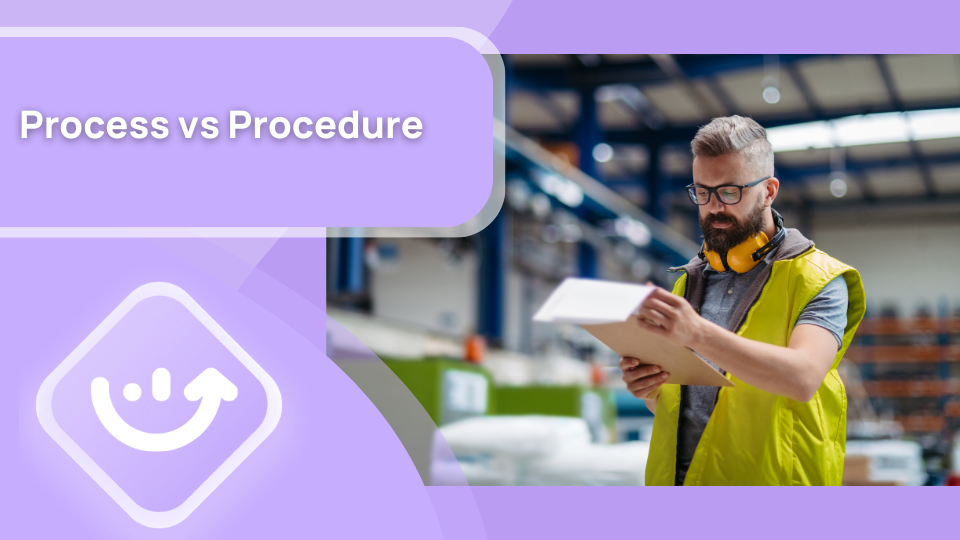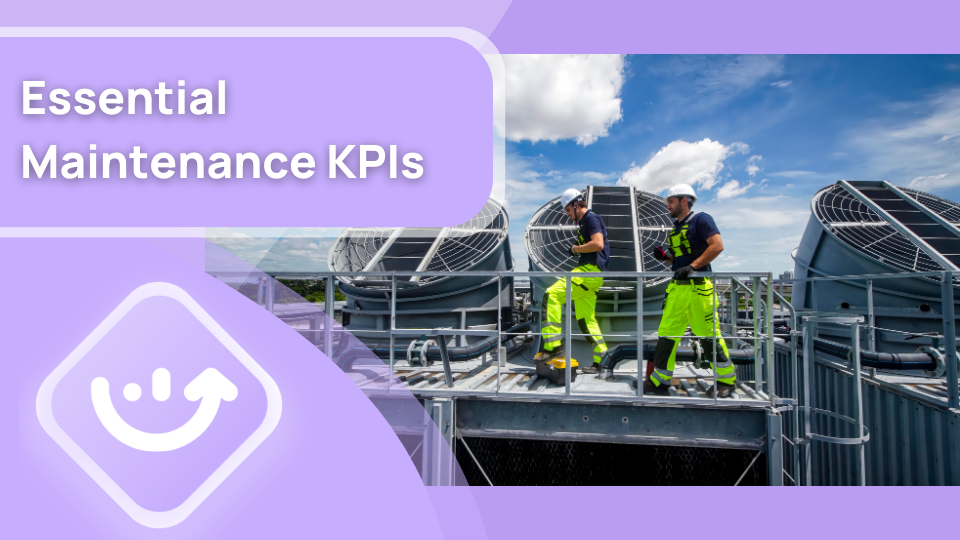For multi-unit hospitality and retail operations, effective training and task management are mission-critical. Opus Training is a popular mobile-first LMS for frontline staff, but some users report growing pains with connectivity and advanced features.
For example, managers note, “hourly employees sometimes have difficulty getting on WiFi, and we don’t pay for cell data”. Others point out that Opus is “still a young company, it does lack some typical LMS features”.
These challenges, connectivity issues, limited customization, and feature gaps highlight why many brands seek Opus alternatives. This guide reviews the leading alternatives and shows how each addresses common pain points in training and operations.
We position Xenia as the #1 choice, with its robust frontline training features and operations management tools, and then compare 8 other solutions.
Below is a quick overview of each Opus alternative, its strengths, and pricing, followed by a detailed profile of Xenia and succinct profiles of other top tools.
A Rundown of the Top 9 Opus Alternatives

.svg)


1. Xenia - Your #1 Opus Alternative
Best For: Multi-unit businesses in high-turnover industries such as hospitality, retail, and food service

In a sea of Opus alternatives, Xenia stands as the most powerful contender designed specifically for multi-unit hospitality, food service, and retail teams. Frontline workers use Xenia to access bite-sized training and complete tasks in the flow of work. Managers gain full visibility into completion, quality, and compliance across all locations.
Contrary to isolated LMS systems such as Opus or blanket tasking applications, Xenia includes microlearning solutions fueled by AI, multilingual training, digital checklists, inspections, and task management, all in a single easy-to-use dashboard that supports deskless workforces. This implies that no longer is training performed as a distinct event; rather, it is provided as just-in-time and directly embedded into daily business processes.
Xenia helps restaurants drive learning in the field and at the right time, so whether introducing a new element to the menu, sustaining brand requirements, or developing its staff members, the education is always where and when it is needed the most.
The result? More consistent execution, better customer experiences, and a stronger, more engaged frontline workforce. If you need a mobile-first LMS for restaurants that is truly built for operational excellence, not just compliance, Xenia stands apart as the #1 Opus alternative.
Features That’ll Make You Switch from OPUS
- AI-Powered Content Creation
Xenia can auto-generate training SOP content using AI. Its AI tool instantly transforms lengthy SOPs or manuals into interactive micro-learning lessons. Writing training from scratch is time-consuming, and frontline teams need up-to-date, relevant content. Xenia’s AI speeds this up dramatically.
For example, a manager uploads a new safety policy PDF; Xenia’s AI analyzes it and creates a short checklist and quiz. This cuts content creation time from hours to minutes and ensures staff always see current procedures.
- Mobile Microlearning & 60‑Second Videos
Xenia emphasizes microlearning, short, engaging training segments for quick absorption. Lessons can include 60-second videos or bite-sized modules delivered on employees’ phones. Hourly staff struggle with lengthy e-learning. Xenia follows this approach to boost retention and reduce training fatigue.

- QR Code Access & On-Demand Learning
Xenia offers point-of-need training via QR codes. The QR codes will allow employees to scan them and immediately start the proper learning without interrupting the working process. As an example, a barista scans a QR code on the grinder and watches the short video on grind settings appear before their eyes. This brings learning to the field, where it is needed.

- Built-in Assessments & Verification
Xenia includes integrated quizzes and assessments. After training or shifts, staff take quick quizzes to confirm understanding or skills. In high-turnover environments, managers must ensure everyone is competent. Xenia’s instant knowledge checks reduce the guesswork.
After a food safety module, a server answers a 3-question quiz on hygiene rules. The manager immediately sees who passed or needs remedial work. This real-time skills verification streamlines compliance and onboarding.

- Mobile-First with Offline Support
Xenia is 100% mobile-optimized and works offline. The whole service is an app available by phone or tablet, and the content may be downloaded to be watched offline. Frontliners tend to be mobile or in a poor Wi-Fi quality zone (kitchens, backrooms).
Offline access ensures training and tasks are always reachable. A warehouse worker downloads the day’s checklist at the start of the shift. Even if connectivity is lost later, the checklist and any videos remain available. Progress syncs when back online, so managers always have up-to-date data.
- Embedded Training in Workflows
Xenia integrates learning directly into task workflows. Training modules can be linked to daily checklists and inspections. Learning on the job is more effective than separate courses. Xenia makes training a seamless part of operations.
For example, an opening-shift checklist might trigger a quick refresher on register protocols. Since training “no longer interrupts workflow but enhances operational efficiency”, employees learn just what they need as they work.
- Digital Checklists & Task Management
Xenia replaces pen-and-paper logs with centralized, mobile checklists and to-dos. Managers can assign tasks and schedule work orders that staff complete on their phones, with photo attachments and notes.

The Smart, Seamless Solution for Deskless Teams
Xenia is a better competitor to Opus because it provides a more complex, AI-enhanced solution made to perform in high-turnover industries working across short cycles. It has embedded microlearning, in-time management of the tasks, and the capability to provide offline support and ensure that the employees have all the training that they need when they need, and do not have to stop working to get the training.
Xenia can make training more on-demand, time-efficient, contextual with auto-translation, QR code access, and automated corrective actions, thus a better option to have in business, requiring excellence in operation and learning on the fly.
Customer Testimonial
"With Xenia, the standout feature is the uniformity it brings across all our stores. Each morning, I receive updates, allowing me to monitor store activities effortlessly." - Chief Operating Officer, Flirt
"Xenia has not only simplified our daily operations but has also brought unparalleled consistency and control across all our locations. It's been a game-changer for managing our growth seamlessly."- Director of Facilities, Prince Street Pizza
Xenia Pricing
Xenia offers flexible plans for growing and enterprise multi-location businesses.
- Premium: Advanced multi-site management with automations. Includes custom dashboards, automated corrective actions, equipment QR codes, work request routing, and premium support. Let’s chat about pricing.
- Enterprise: Tailored workflows and advanced analytics for 10+ locations. Includes Premium features plus a dedicated account manager, onboarding, integrations, template digitization, and add-ons like SSO and temperature monitoring.
Contact Xenia to get a tailored quote based on your business size and needs.
.svg)

Priced on per user or per location basis
Available on iOS, Android and Web
2. TalentLMS
Best for: Companies that need an easy-to-use cloud-based LMS for their internal training, completing necessary compliance, or teaching customers.

TalentLMS is a cloud-based LMS that offers easy operations and a lot of flexibility. With this tool, teams can produce and give out learning materials fast without any intricate preparation.
Hospitality and retail organizations count on it for teaching internal rules, helping new members of staff, and boosting customer knowledge. TalentLMS features an extensive content library, game-like activities, and flexible reporting, which makes it simple for anyone from businesses of all sizes to use.
TalentLMS' Key Features
- Drag-and-drop course builder supporting SCORM, video, PDFs, and quizzes.
- There is a built-in library (TalentLibrary) filled with ready-to-use training materials.
- Teaching should employ badges, points, and leaderboards to increase the engagement of students.
TalentLMS' Limitations
TalentLMS is not specialized for frontline workers. It lacks native checklist/task workflows or embedded training in daily operations. Mobile experience is good, but not optimized for “learn in the flow of work” needs typical in retail and hospitality.
Pricing
You can use Simple Invoices for free by up to 5 users, or pay $119/month for 40 users and more.
3. WorkRamp
Best for: Mid-market and enterprise organizations should use an LMS that enables both their staff and people outside the company.

WorkRamp is an up-to-date cloud LMS that retail, hospitality, and business teams use for training their staff, sales teams, and customers. It makes it possible for businesses to develop learning curricula for several audiences on one platform.
Using WorkRamp, you get to use simple content creation tools, analyze results, and connect them with apps such as Slack, Salesforce, and Zoom.
WorkRamp's Key Features
- Multi audience support- multifunctional onboarding, sales enablement, and customer education on the same learning platform.
- Video, PDF, documentation, and live training sessions with automated learning paths through a drag-and-drop content builder to publish SCORM.
- Automated workflow and engagement tracking via Native integrations with Salesforce, Slack, Zoom, and HRIS.
WorkRamp's Limitations
WorkRamp is priced at a premium compared to some frontline-focused LMS tools. It is primarily optimized for knowledge workers and enterprise clients, not as deeply tailored to shift-based retail or hospitality teams.
Pricing
Custom pricing starting around $10,000 annually. Exact costs depend on the number of learners and modules used.
4. LearnUpon
Best for: Businesses that are looking for a flexible LMS to give training to staff, business partners, and customers internally.

LearnUpon is trusted by enterprises to offer programs for different learners through powerful tools for content creation and tracking. The technology is present in the hospitality, retail, and technology fields.
SCORM compatibility, training paths, testing activities, certifications, and multi-tenant architecture are provided by LearnUpon for brands handling many business units or affiliated companies.
LearnUpon's Key Features
- Multi-tenant LMS architecture supporting internal, partner, and customer training from a centralized platform with granular permissions.
- Supports SCORM standards, includes effective assessment and certification tools, and shows insightful course information in the dashboard.
- Learners can use HRIS, CRM, and other tools with Salesforce, BambooHR, and Zoom for a better online learning experience.
LearnUpon's Limitations
LearnUpon is an enterprise LMS optimized for structured learning paths. It does not natively support task-based or in-the-flow-of-work training models preferred by many frontline teams.
Pricing
Custom pricing starting at approximately $599/month and scaling based on user count and features selected.
5. EduMe
Best for: Large distributed teams needing mobile-first training and communication for frontline workers in retail, hospitality, and service industries.

EduMe is a mobile-first LMS focused on workforce enablement for distributed frontline teams. The app allows employees to study, communicate with peers, and see their performance, and such brands as restaurants or stores in the retail industry turn to EduMe to provide individuals with brief and engaging training tasks to study on their phones.
It should be picked as a basis for a fast-developing business due to the simplicity of the platform and its scalability.
EduMe's Key Features
- Mobile-first learning delivery with short video, text, and quiz modules optimized for on-the-go consumption by shift workers.
- Seamless integrations with workforce apps (Workday, Braze, Fountain) enabling just-in-time training during employee onboarding or task execution.
- Managers can access real-time updates on the training effort and involvement of their teams and offices in the portal.
EduMe's Limitations
EduMe is optimized for lightweight microlearning and lacks advanced LMS features like SCORM, LTI, or detailed course structures. Better suited for fast-paced frontline environments than structured corporate learning.
Pricing
Custom pricing based on the number of users and integrations. Entry-level pricing typically starts at ~$2–$5 per user/month.
6. Axonify
Best for: Large enterprises seeking an adaptive LMS that delivers personalized learning and daily reinforcement to frontline employees.

Axonify uses new technologies to ensure that training meets the specific needs of employees. Major retail and food chains as well as major financial services trust it. Axonify encourages workers to learn daily with short sessions, through games, and with constant feedback, which helps employers maintain effective conduct and top performance among staff.
Axonify's Key Features
- AI-driven adaptive learning engine delivering daily personalized learning experiences to each employee based on their knowledge gaps.
- Gamification features (leaderboards, badges) to drive engagement and knowledge retention among busy frontline staff.
- Advanced analytics and business impact tracking show how training outcomes correlate to operational KPIs and performance.
Axonify's Limitations
Axonify is an advanced, premium platform typically used by large enterprises. It can be costly for SMBs and may require significant content development and setup time.
Pricing
Custom pricing only. Enterprise-level contracts typically depend on the number of users and features.
7. 7taps
Best for: Businesses needing to rapidly deploy ultra-short microlearning experiences to frontline teams via mobile devices and messaging apps.

7taps is a no-code, mobile-first microlearning LMS designed for instant content creation and delivery. It allows companies to build learning experiences in minutes and push them out via SMS, email, Slack, or MS Teams.
This app is especially effective for companies with high turnover or gig-based teams who need lightweight, frictionless learning that fits into daily work. Its content style is similar to Instagram Stories, optimized for short attention spans.
7taps' Key Features
- Rapid, no-code authoring tool for building story-based microlearning experiences in under 10 minutes with multimedia content.
- Instant delivery via SMS, email, Slack, MS Teams, or LMS integrations, no app download required for learners.
- Analytics dashboards track learner engagement, completions, and retention metrics for each microlearning campaign.
7taps' Limitations
The app 7taps is not a full LMS; it’s optimized for ultra-short, stand-alone microlearning, not structured courses or compliance tracking. Best used alongside a primary LMS or operations system.
Pricing
Free tier available with limited features; paid plans start at $99/month for small teams with unlimited learners.
8. Northpass
Best for: Businesses needing a flexible LMS to deliver customer, partner, or employee training with deep integrations into existing tech stacks.

Northpass is a cloud LMS that supports training across multiple audiences, internal teams, customers, and partners. It offers flexible course creation and advanced integrations with CRM, marketing automation, and customer support tools. Northpass is ideal for hospitality brands, franchise networks, and retail companies that want to deliver consistent branded training across internal and external users while tying learning data back into business systems.
Northpass' Key Features
- Flexible course builder supporting SCORM, video, quizzes, and blended learning models for multi-audience training delivery.
- Deep integrations with CRM and marketing platforms (Salesforce, HubSpot, Zendesk) for personalized training and automated workflows.
- Advanced analytics and learner segmentation to track training impact across diverse user groups (employees, customers, partners).
Northpass's Limitations
Northpass is primarily designed for external or hybrid audiences and may require more customization to serve pure frontline internal training needs. It is better suited to distributed training use cases than embedded, in-the-flow-of-work learning.
Pricing
Custom pricing based on features and user volume. Entry-level plans typically start at ~$800–$1,200/month.
9. Docebo
Best for: Mid-market and enterprise businesses needing a highly customizable LMS with strong AI-driven learning capabilities.

Docebo is an enterprise-grade LMS used across industries including retail, hospitality, and corporate environments. It offers robust content management, learning automation, social learning features, and advanced analytics. Docebo is particularly strong in AI-based content recommendations and personalized learning paths, helping businesses deliver scalable, adaptive learning experiences across global teams.
Docebo's Key Features
- AI-powered personalized learning paths with automated content recommendations based on learner behavior and performance data.
- SCORM, xAPI, and AICC compliance with extensive content management tools, learning automation, and multi-language support.
- Social learning tools, including peer-to-peer sharing, gamification, and user-generated content, are used to drive engagement.
Docebo's Limitations
Docebo is an advanced enterprise LMS with premium pricing and complexity. It requires significant setup and ongoing management, which may be overkill for smaller frontline teams needing lightweight, in-the-flow training.
Pricing
Custom pricing based on users and features. Typically starts around ~$25,000/year for mid-market deployments.
Conclusion and Next Steps
Choosing the right platform depends on your specific needs. For end-to-end frontline training and operations, Xenia stands out by combining both aspects in one place. It's mobile microlearning, AI content tools, and multilingual support directly address the common training pain points noted with Opus (connectivity, content creation, coverage).
Meanwhile, its robust digital checklists, inspections, and analytics tackle operations challenges. As one Xenia resource observes, modern LMS for retail/hospitality “must include mobile-first accessibility, microlearning, multilingual capabilities, operability integration, and analytic tools”, all of which Xenia delivers.
Ready to see Xenia in action? Start a free trial of Xenia or schedule a demo today. Empower your team with training that sticks and operations that run smoothly—so you can get back to what matters most: great customer experience.
Frequently Asked Questions
Got a question? Find our FAQs here. If your question hasn't been answered here, contact us.

Looks like there's no data available in our FAQ section at the moment.

.svg)
.webp)
%201%20(1).webp)







.svg)
%201%20(2).webp)










